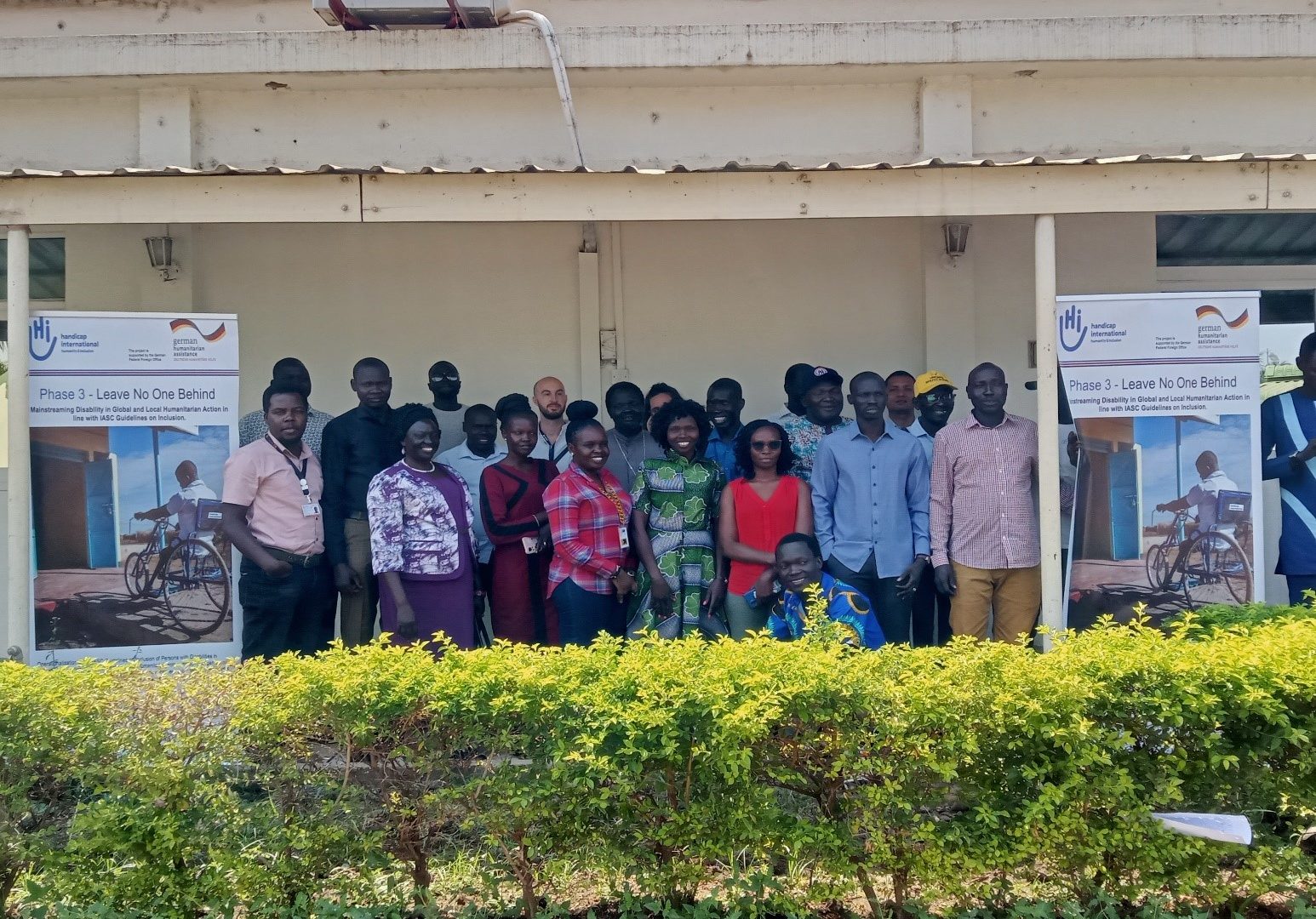
© HI/ Obale Musa
HI’s South Sudan Team launched the “Phase 3 – Leave No One behind!” Project on 12th January 2023 at Juba Grant hotel.
The kick-off workshop with protection cluster members was attended by 33 persons, including participants from Organization of Persons with Disabilities (OPDs), UN-agency, national Non-Governmental Organizations, International Organizations and representatives from Ministry of Gender, Child and Social Welfare.
The main objective was to introduce Phase 3 – Leave no one behind! Project to protection cluster members so that they better understand the project goals and know how to engage and benefit from it. During the workshop, participants met, interacted, and exchanged ideas with the protection cluster members and Ministry of Gender, Child, and Social Welfare officials.
To complement the success of the kick-off workshop, the Chairperson from South Sudan Union of Persons with Disabilities (SSUPD), which is an umbrella union of all the Organization of Persons with Disabilities in South Sudan concluded:
“I would like to appreciate Humanity & Inclusion for organizing this kick-off workshop for the launch of “Phase 3 – Leave no one behind!” project. I hope this project will enhance collaboration and relationship between the OPDs and protection cluster partners and other stakeholders, and will build on the capacities of both OPDs since they will be engaged as co-facilitators. I believe this project will also enable the protection cluster partners to mainstream disability in their programming to ensure access to humanitarian services and meaningful participation of persons with disabilities in humanitarian action.”
Augustino Wudu, South Sudan Union of Persons with Disabilities (SSUPD) Chairperson, South Sudan.
Additionally, Hon Lily Kiden Eluzai, the Chairperson for Gender, Child and Social Welfare also expressed her happiness about the project and willingness to work together:
“This is an incredibly good initiative. The Ministry of Gender will fully support this project because we need persons with disabilities to be empowered in all the ten states and three administrative areas in South Sudan to equally access humanitarian services and meaningfully engaged in humanitarian actions. So, through capacitation of humanitarian actors on disability mainstreaming which is part of this project, we hope persons with disabilities will not be excluded or left behind…”
Workshop participants actively engaged and raised questions, e.g., about the role of OPDs in the project and how local communities can benefit from the project as it targets the members of the protection cluster members. The project team addressed the questions and shared the next steps with the participants to keep them informed on upcoming activities. The participants showed interest and exchanged contacts with the project team for further follow-up and collaboration.